Planning worship?
Check out our sister site, ZeteoSearch.org,
for 20+ additional resources related to your search.
- |
User Links
Person Results
‹ Return to hymnal
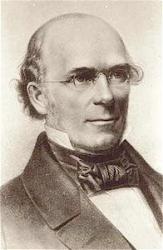
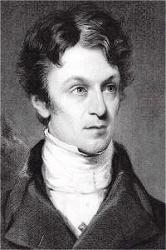

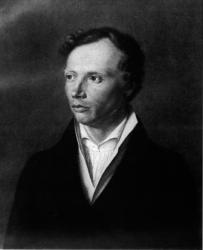
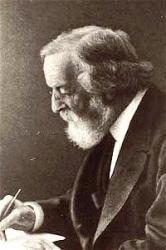
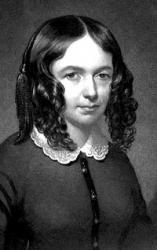
Export as CSV
Theodore Parker

1810 - 1860 Person Name: Rev. Theodore Parker Hymnal Number: 33a Author of "O thou great Friend to all the sons of men" in Hymns of the Ages (3rd series) Parker, Theodore, M.A., was born at Lexington, Massachusetts, Aug. 24, 1810; laboured with his father as a farmer and mechanic; entered Harvard College in 1830, but continued his work at home and attended the College for examinations; attended the Divinity School from 1834 to 1836, and became pastor of the Unitarian congregation in West Roxbury, June 21, 1837. He received the degree of M.A. from his College in 1840. Changes in his theological views led him to undertake the pastorate of a congregation in Boston, in January 1846. He continued his writing, preaching, and lecturing till 1859, when bleeding at the lungs compelled him to seek relief in Europe. He died at Florence, May 10, 1860. His publications were numerous, and have been republished in Great Britain. An extended list is given, together with 12 poetic pieces, in Putnam's Singers and Songs of the Liberal Faith, Boston, U. S. A., 1875. His life has been published by Weiss, and by Frothingham. A few of his poetical pieces are given in American Unitarian hymn-books.
These include :—
1. In darker days and nights of storm. Almighty Love. "Introduced in a sermon which Mr. Parker preached, entitled ‘The Practical Effects of the Ecclesiastical Conception of God.’”
2. 0 Thou great Friend of all the sons of men. Jesus the Way, the Truth, and the Life. This in the original is a sonnet. Altered for use as a hymn, it is widely used by American Unitarian; and is also given in some English hymnbooks.
-- John Julian, Dictionary of Hymnology (1907)
Theodore Parker
James Martineau

1805 - 1900 Person Name: Martineau Hymnal Number: 222 Author of "He who himself and God would know" in Hymns of the Ages (3rd series) Martineau, James, LL.D., D.D., born at Norwich, April 21, 1805, the son of a manufacturer and wine merchant of Huguenot descent. After four years at the Norwich grammar school, and two as a pupil of Dr. Lant Carpenter, at Bristol, and a short experience in the shops of a mechanical engineer at Derby, he entered as a Divinity student in Manchester College, York. His first ministry was at Eustace St. Chapel, Dublin [1828-32], as assistant to his cousin, the Rev. Philip Taylor. From 1832 to 1857 he was in Liverpool, as minister of the congregation meeting in Paradise St. Chapel, and from 1849 in the new Hope St. Church. In 1840 he was appointed professor of Mental and Moral Philosophy and Political Economy in Manchester New College and in 1857 followed the college to London, becoming its Principal in 1869 and resigning in 1885. On settling in London he became also minister of Little Portland St. Chapel, first in conjunction with the Rev. J. J. Taylor, and afterwards alone till his resignation in 1872. He received the degree of D.C.L. from Oxford in 1888. Died Jan. 11, 1900.
The chief of Dr. Martineau's works hitherto published are four volumes of sermons, Endeavours after the Christian Life, 2 vols., 1843 and 1847; Hours of Thought on Sacred Things, 2 vols., 1876 and 1879; Studies of Christianity, 1858; Essays Philosophical and Theological 2 vols., 1866 and 1868, collected from various Reviews; A Study of Spinoza, 1882; and Types of Ethical Theories, 2 vols., 1885, 2nd ed. 1886. These contain the substance of his teaching as a Christian minister and an expounder of a spiritual philosophy of religion. By early training and matured conviction a Unitarian of the Catholic and spiritual type, Dr. Martineau has served not only the little group of churches with which he is immediately connected, but the Church Universal by his gifts of sympathy and insight into the deepest questions of human life. He has strengthened the foundations of faith in the light of modern knowledge, and added treasures, the worth of which have yet to be fully measured, to the rich store of the devout literature of the Church.
The Catholic spirit and deeply Christian temper impressed upon all Dr. Martineau's literary work give their distinctive character to the three hymn-books which he has edited, viz.:—
(1) A Collection of Hymns for Christian Worship. Dublin: Printed for the Congregation of Eustace Street 1831. This collection of 273 hymns already clearly indicates the principles of selection afterwards to be more fully worked out. It was made for the use of a society, "whose worship is paid solely to the God and Father of our Lord and Saviour Jesus Christ," and in adopting the hymns of Dr. Watts and others, such changes are made as are required by theological consistency; but the preface pleads for a wider latitude of choice than had been usual in older selections, "bringing all the resources of lyric poetry (the poetry of the affections) into the service of religion." There are 18 hymns by Bishop Heber introduced, and special mention is made of his merit in ”first liberalizing the style of poetry designed for our churches."
During his ministry in Liverpool Dr. Martineau published:—
(2) Hymns for the Christian Church and Home. Collected and edited by James Martineau. London, 1840. This with his own congregation took the place of the old Paradise St. collection of 1815, and was quickly recognised as pre-eminent among the books in use among the non-subscribing churches.
Dr. Martineau's last collection was:—
(3) Hymns of Praise and Prayer, collected and edited by James Martineau, LL.D., D.D. “Vatum suspiria solatium Ecclesiae." London, 1873.
Dr. Martineau's own hymns:—
1. A Voice upon the mid-night air. Good Friday
2. Thy way is in [on] the deep, 0 Lord. Trust.
3. "Where is your God?" Inward witness of God.
They have been hitherto published anonymously, but the authorship is now acknowledged. Nos. 1, 2, appeared first in his Hymns, &c, 1840, and 3 in his Hymns, &c.,1873. They are also found in other collections in Great Britain and America. [Rev. Valentine D. Davis, B.A.]
-- John Julian, Dictionary of Hymnology (1907)
James Martineau
Michelangelo Buonarroti, 1475-1564

1475 - 1564 Person Name: Michel Angelo, 1474-1564 Hymnal Number: 81 Author of "The prayers I make will then be sweet indeed" in Hymns of the Ages (3rd series)
Michelangelo Buonarroti, 1475-1564
Ludwig Uhland

1787 - 1862 Person Name: Uhland Hymnal Number: 56 Author of "There is a land where beauty cannot fade" in Hymns of the Ages (3rd series) German poet, lawyer, and politician
Ludwig Uhland
Thomas Grinfield
1788 - 1870 Hymnal Number: 178 Author of "They talked of Jesus as they went" in Hymns of the Ages (3rd series) Grinfield, Thomas, M.A., b. Sept. 27th, 1788, and educated at Paul's Cray, Kent, and Trinity College, Cambridge. Taking Holy Orders in 1813, he was (preferred to the Rectory of Shirland, Derbyshire, in 1827 (Lyra Britannica, 1867, p. 256). He died in 1870. His published works include:— (1) Epistles and Miscellaneous Poems, London, 1815; (2) The Omnipresence of God, with Other Sacred Poems, Bristol, 1824; and (3) A Century of Original Sacred Songs composed for Favourite Airs, London, 1836.
From Nos. 2 and 3 the following hymns have come into common use:—
1. And is there a land far away from sin and woe? Heaven. No. 84 of his Century of Original Sacred Songs, 1836, in 4 stanzas of 4 lines, and headed "The Heavenly Land."
2. 0 how kindly hast Thou led me [us]. The Divine Guide, No. 88 of his Century, &c, 1836, in 2 stanzas of 8 lines, and entitled "Remembrance of the Way." In 1838 it was given as No. 166 in J. H. Gupaey's Lutterworth Collection, 1838; in M. Marylebone Psalms & Hymns, 1851, No. 165; Lord Selborne's Book of Praise, 1862, No. 208, and other collections.
3. Then it burst, the glorious view. Heaven. First published in his Omnipresence of God, &c, 1824, p. 181, in 3 stanzas of 8 lines, and entitled "The New Jerusalem." It is given in Snepp's Songs of Grace & Glory, 1872, No. 1003.
4. They talked of Jesus as they went. The walk to Emmaus. First published in his Century, &c, 1836, No. 52, in 5 stanzas of 8 lines, and headed 'The Visit to Emmaus." It was given in Lord Selborne's Book of Praise, 1862, No. 297, and in Lyra Eucharistica, 1863.
5. Though far from thy [your] country, unfriended, unknown. Departure of Missionaries. Appeared in his Century, &c, 1836, No. 38, in 5 stanzas of 4 lines, and headed "Departure of Missionaries." In Dale's English Hymn Book, 1874. No. 1031, it is somewhat altered, and stanzas iii. and iv. are omitted.
6. 'Tis come, the time so oft foretold. Christmas. No. 68 in his Century, &c., 1836, in 10 stanzas of 6 lines, and headed "Angels announcing to Shepherds the Birth of a Saviour. A Christmas Ode." In J. H. Gurney's Lutterworth Collection, 1838, stanzas i., vi., ix., x. were given as No. 254. These were repeated in his Marylebone Psalms & Hymns, 1851, as No. 260; and in Lord Selborne's Book of Praise, 1862, as No. 32.
7. 'Tis not in circumstances. Faith. In its original form this is not in common use, except in The Comprehensive Rippon, 1844,but it appeared as No. 44 in his Century ,inc., 1836, as "Ail may be outwardly," in 4 stanzas of 12 lines. In Dr. Dale's English Hymn Book, 1874, No. 592, stanzas iii.-iv. are given in a slightly altered form.
8. When my heart beguiling. Presence of Christ desired. Pt. ii. of Song 2 in his Century, &c, 1836, in 13 lines, and headed "Remember me. The Christian's request of his Saviour." In Dale's English Hymn Book , 1874, No. 534, line 7 is omitted.
9. Why art thou grieving? Trust. No. 17 of his Century, &c, 1836, in 2 stanzas of 12 lines, and headed "Why art thou disquieted? Hope thou in God." In Dale's English Hymn Book, 1874, No. 599, it begins "Why are we grieving?" and is divided into 6 stanzas of 4 lines.
In addition to these hymns there are in the Lyra Britannica, 1867, the following:—
10. All may be outwardly. The Heart the seat of Peace or Pain. No. 44, but see No. 7 for this.
11. Grant me, Lord, to walk with Thee. Simplicity.
12. 0 could we pilgrims raise our eyes. Walking by Faith.
Of these, No. 10 is in Sacred Melodies appended to some editions of the Comprehensive Rippon, together with the following:—
13. Happy those who rest have found. Repose in Jesus. No. 59.
14. How still amidst commotion. Hope.
15. 0 do not forsake me, my Father, my Friend. God's continued presence desired.
16. Sweetly let's join our evening hymn. For use at Sea.
17. Sweetly ye blow, celestial gales. For use at Sea.
18. Wake, my voice, O wake once more. Farewell.
These hymns all appeared in his Century, &c., 1836. [William T. Brooke]
-- John Julian, Dictionary of Hymnology (1907)
Thomas Grinfield
Thomas Park
b. 1760 Hymnal Number: 122b Author of "Hear my prayer, O Heavenly Father" in Hymns of the Ages (3rd series) Park, Thomas, F.S.A., was born in 1760 and died in 1835. He was an engraver, but found more congenial work in literary pursuits. In addition to publishing Nugæ Modernæ, an original work of prose and poetry, in 1818, he also edited several works, including the Works of J. Hammond, 1805; Works of John Dryden, 1806; the Works of the British Poets, in 42 small volumes, 1808; Poetical Works of Isaac Watts, 1807, and others.
His hymn:—
My soul, praise the Lord, speak good of His Name, His mercies record, &c, Ps. civ., or Universal Praise, appeared in Psalms & Hymns. Selected from Various Authors, with Occasional Alterations, for Use of a Parochial Church. By a Country Clergyman. London: Bulmer 1807, p. 556, in 5 st. of 8 1. There is appended thereto the following note:—
"At the moment of closing this little collection I am favoured with the above hymn from my obliging friend. This almost extemporaneous effusion of his peculiarly neat and poetic pen was excited by my expressing (in a letter soliciting some psalmodic information) regret that I had only one set of words for Handel's simple, sublime tune for the 104th Psalm."
For these details we are indebted to Miller's Singers and Songs of the Church, 1869, p. 329. The opening line of this hymn is composed of the first two lines of W. Kethe's version of Ps. civ. in the Old Version, 1561.
-- John Julian, Dictionary of Hymnology (1907)
Thomas Park
William H. Hurlburt
1827 - 1895 Person Name: W. H. Hurlburt Hymnal Number: 89 Author of "My God! in life’s most doubtful hour" in Hymns of the Ages (3rd series) Hurlburt, William Henry, was born at Charlestown, South Carolina, July 23, 1827, and educated at Harvard. He also studied at Berlin, Paris, and Rome. In 1848 he contributed the following hymns to Longfellow and Johnson's Unitarian Book of Hymns;—
1. My God, in life's most doubtful hour. Faith desired, or, the Power of Trust.
2. We pray for truth and peace. Faith desired.
3. We will not weep, for God is standing by us. The Might of Faith. [Rev. F. M. Bird, M.A.]
-- John Julian, Dictionary of Hymnology
=======================
Hurlburt (Hurlbut, Hurlbert), William Henry. (Charleston, South Carolina, July 3, 1827--September 4, 1895, Cadenabbia, Lake Como, Italy). His family name is spelled Hurlburt in records at Charleston, but at Harvard he was registered as Hurlbut, and in later years he changed the spelling to Hurlbert. He graduated from Harvard College in 1847 and from the Divinity School in 1849. He preached in Unitarian pulpits for a few months, but was never ordained as a settled minister. He studied at the Harvard Law School for a year, then turned to journalism in New York City. After 1883, he spent most of his time in Europe, his last few years in Italy. As a student at Harvard he was a contemporary of Samuel Longfellow and Samuel Johnson and contributed three hymns to their Book of Hymns, edition of 1848, which they also included in their Hymns of the Spirit, 1864. In both books his surname is spelled Hurlbut.
--Henry Wilder Foote, DNAH Archives
William H. Hurlburt
James Merrick
1720 - 1769 Person Name: Merrick Hymnal Number: 132 Author of "Author of good, to thee we turn" in Hymns of the Ages (3rd series) Merrick, James , M.A., was born in 1720, and educated at Oxford, where he became a Fellow of Trinity College. He entered Holy Orders, but his health would not admit of parish work. He died at Reading, 1769. His publications include:—
(1) Messiah, a Divine Essay. Humbly dedicated to the Reverend the Vice-Chancellor of the University of Oxford and the Visitors of the Free School in Reading. By James Merrick, Ætat. 14, Senior Scholar of the School at their last Terminal Visitation, the 7th of October, 1734. Reading. (2) The Destruction of Troy. Translated from the Greek of Tryphiodorus into English Verse, with Notes, &c. 1742. (3) Poems on Sacred Subjects. Oxford . 1763. (4) The Psalms of David Translated or Paraphrased in English Verse. By James Merrick, M.A., late Fellow of Trinity College, Oxford. Reading. J. Carnan and Co. 1765. 2nd ed. 1766. A few only of these paraphrases were divided into stanzas. In 1797 the Rev. W. D. Tattersall pulished the work "Divided into stanzas for Parochial Use, and paraphrased in such language as will be intelligible to every capacity . . . with a suitable Collect to each Psalm from the Works of Archbishop Parker."
Merrick's paraphrases, although weak and verbose, were in extensive use in the early part of the present century, both in the Church of England and with Nonconformists. They have, however, fallen very much into disuse. Those in modern hymn-books, mainly in the form of centos, include:—
1. Blest Instructor, from Thy ways. Ps. xix.
2. Descend, O Lord! from heaven descend. Ps. cxliv. (In time of National Peril.)
3. Far as creation's bounds extend. Ps. cxlv.
4. God of my strength, the wise, the just. Ps. xxxi.
5. He who with generous pity glows. Ps. xli.
6. How pleasant, Lord.Thy dwellings are. Ps. lxxxiv.
7. Lift up your voice and thankful sing. Ps. cxxxvi.
8. Lo, my Shepherd's hand divine. Ps. xxiii.
9. Lord, my Strength, to Thee I pray. Ps. xxviii.
10. My heart its noblest theme has found. Ps.xlv.
11. O let me, [gracious] heavenly Lord extend. Ps. xxxix.
12. O turn, great Ruler of the skies. Ps. li.
13. Praise, O praise the Name divine. Ps. cl.
14. Sing, ye sons of [men] might, O sing. Ps. xxix.
15. Teach me, O teach me, Lord, Thy way. Ps. cxix.
16. The festal morn, my [O] God, is come. Ps. cxxii, (Sunday Morning.)
17. The morn and eve Thy praise resound. Ps. lxv. (Harvest.)
18. To Thy pastures, fair and large. Ps. xxiii.
From his Poems on Sacred Subjects, 1763, the following centos have also come into common use: --
19. Author of good, to Thee we turn. Resignation.
20. Eternal God, we look to Thee. Resignation.
21. 'Tis enough, the hour is come. Nunc Dimittis.
John Julian, Dictionary of Hymnology (1907)
James Merrick
James Freeman Clarke

1810 - 1888 Person Name: Rev. Jas F. Clarke Hymnal Number: 180 Author of "Dear Friend, whose presence in the house" in Hymns of the Ages (3rd series) Clarke, James Freeman, D.D., is a grandson of James Freeman (q. v.)> from whom he was named. He was born at Hanover, New Hampshire, April 4, 1810, and graduated at Harvard College, in Arts, in 1829, and in Divinity, 1833. Receiving ordination as a Unitarian Minister, he was Pastor at Louisville, Kentucky, from 1833 to 1840; of the Church of the Disciples, Boston, from 1811 to 1830; and also from 1853. Dr. Clarke for some time edited, whilst at Louisville, The Western Messenger, and is the author of Orthodoxy, its Truths and Errors, 1866; The Christian Doctrine of Forgiveness, 1852; The Christian Doctrine of Prayer, 1854, and other works. In 1844 he published the Hymn Book for the Church of the Disciples. This he enlarged in 1852. To each edition be contributed five hymns. Of these ten hymns five are found in the Lyra Sacra Americana The best known of Dr. Clarke's hymns are:—
1. Father, to us Thy children, humbly kneeling. [thoughts desired.] Dr. Clarke says this was manufactured from:—
2. Infinite Spirit, who art round us ever. [Holy thoughts desired], “which was written in Kentucky about 1833, and printed in the Dial soon after."
3. Brother, hast thou wandered far! [The Prodigal Son.] This appeared in his Disciples' Hymn Book, 1844, and is somewhat extensively used. It appeared in an Brother abbreviated form as, "Hast thou wasted all the powers?" beginning with stanza ii., in Hymns for the Church of Christ, Boston, 1853; Beecher's Plymouth Collection, 1855, and subsequently in others in Great Britain and America. The next three are also in one or two English collections.
4. To Thee, 0 God, in heaven. [Holy Baptism.] 1844.
5. To Him who children blessed. [Holy Baptism.] 1844.
6. Friend, whose presence in the house. [Christ's presence desired.] 1855. The beauty and value of this last hymn have been partly, and deserve to be more fully, recognized. It is found in Lyra Sac. Amer., which also has the following on "The Protestant Reformation":—
7. For all Thy gifts we praise Thee, Lord. This hymn was sung at the collation given by the Unitarians of New York and Brooklyn to the Members of the Convention assembled in the former city, Oct. 22, 1845. As originally written it contained 8 stanzas; the last two are omitted from both Lyra Sac. Americana and Putnam's Singers and Songs of the Liberal Faith. [Rev. F. M. Bird, M.A.]
--John Julian, Dictionary of Hymnology (1907)
James Freeman Clarke
Elizabeth Barrett Browning

1809 - 1861 Person Name: E. B. Browning Hymnal Number: 97 Translator of "From my lips in their defilement" in Hymns of the Ages (3rd series) Browning, Elizabeth, née Barrett, daughter of Mr. Barrett, an English country gentleman, and wife of Robert Browning, the poet, was born in London 1809, and died at Florence in 1861. As a poetess she stands at the head of English female writers, and her secular works are well known. Sacred pieces from her works are in common use in America. They include:
1. God, named Love, whose fount Thou art. Love.
2. How high Thou art! Our songs can own. Divine Perfection.
3. Of all the thought of God, that are. Death.
4. What would we give to our beloved? Pt. ii. of No. 3.
5. When Jesus' friend had ceased to be. Friendship. Based on the death of Lazarus.
These hymns are in Beecher's Plymouth Collection 1855; Hedge and Huntington's Hymns for the Church of Christ, Boston, U.S., 1853, &c.
-- John Julian, Dictionary of Hymnology (1907)
=====================
Browning, Elizabeth, née Barrett, p. 187, i. We find that the usually accepted birth-place (London) of Mrs. Browning must be corrected. She was born at Coxhoe Hall, Durham, March 6, 1806, and baptised as Eliza¬beth Barrett Moulton Barrett at Kelloe Church, Durham, Feb. 10, 1808. [Rev. James Mearns. M.A.]
--John Julian, Dictionary of Hymnology, New Supplement (1907)
Elizabeth Barrett Browning


 My Starred Hymns
My Starred Hymns


